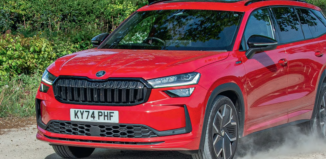As was widely expected, the government’s autumn budget statement introduced a set of new rules for double-cab pick-ups. These are essentially the same as those brought in earlier in the year by the previous government but then hastily abandoned in the face of protests by the farming industry.
From April 2025, double-cabs (even those with a payload of 1000kg or more) will be treated as cars for most taxation
purposes – though not for VAT. This means employees choosing them as company cars will no longer enjoy the minimal benefit-in-kind (BIK) allowance that comes with driving what has previously been classified as a van. If you’re already in this situation, there’s no need to panic. Existing company car drivers with double-cabs will continue to
be taxed at the current rate until April 2029 – though if you sell the vehicle or its lease ends before that date, the exemption won’t roll over to its replacement.
Prior to the budget, double-cabs were classed as light commercial vehicles for income tax purposes, meaning they were subject to a flat BIK rate of £3960 a year. This meant employees would pay £66 or £132 a month, depending on their tax bracket. Under the new rules, the rate will be based on the truck’s P11D value – to all intents and purposes, what it would cost if you were to buy it yourself.
Everyday cars (and indeed SUVs, and double-cabs not capable of carrying more than 1000kg) are already taxed this way; for a typical one-tonner, it will see your tax bill rising by around 350%.
Read the full article in the Winter issue of Overlander 4×4 –


